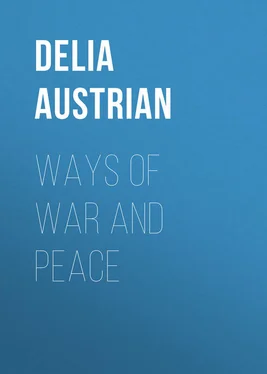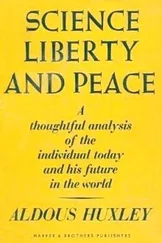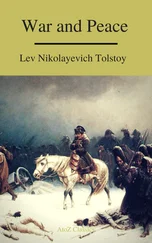Delia Austrian - Ways of War and Peace
Здесь есть возможность читать онлайн «Delia Austrian - Ways of War and Peace» — ознакомительный отрывок электронной книги совершенно бесплатно, а после прочтения отрывка купить полную версию. В некоторых случаях можно слушать аудио, скачать через торрент в формате fb2 и присутствует краткое содержание. Жанр: foreign_antique, foreign_prose, на английском языке. Описание произведения, (предисловие) а так же отзывы посетителей доступны на портале библиотеки ЛибКат.
- Название:Ways of War and Peace
- Автор:
- Жанр:
- Год:неизвестен
- ISBN:нет данных
- Рейтинг книги:5 / 5. Голосов: 1
-
Избранное:Добавить в избранное
- Отзывы:
-
Ваша оценка:
- 100
- 1
- 2
- 3
- 4
- 5
Ways of War and Peace: краткое содержание, описание и аннотация
Предлагаем к чтению аннотацию, описание, краткое содержание или предисловие (зависит от того, что написал сам автор книги «Ways of War and Peace»). Если вы не нашли необходимую информацию о книге — напишите в комментариях, мы постараемся отыскать её.
Ways of War and Peace — читать онлайн ознакомительный отрывок
Ниже представлен текст книги, разбитый по страницам. Система сохранения места последней прочитанной страницы, позволяет с удобством читать онлайн бесплатно книгу «Ways of War and Peace», без необходимости каждый раз заново искать на чём Вы остановились. Поставьте закладку, и сможете в любой момент перейти на страницу, на которой закончили чтение.
Интервал:
Закладка:
On the other hand there are those who say that the only way to safeguard our country is to have a navy and army in keeping with its size and dignity. Our present army and navy mark us as a second-rate power.
There are just as many thinking men and women who say that if a man carries a loaded revolver it is bound to go off some day. It may be justly used in self-defense, but it is more than likely to injure an innocent person. Mr. Bryan's recommendation of treaties backed up by a year of consideration when differences take place is considered a safer method.
These are all steps in the right direction, but they must be extended if this is to be the last war of any real importance that the world shall ever see. All action is based on thought, and much of our wrong acting of today is based on wrong thinking. There will always be different nationalities, just as there are various languages, religions, political parties and economic views. Only a fool can say that French is a better language than Italian or German. Only the narrow-minded will say that the Protestant religion is better than the Catholic or Jewish faiths. The same is true of nations. The French, the English, and the German all have their just place. The French lead the world in making certain articles better than all other countries. In certain other articles we must look for superiority to the Germans, while for others to England and the United States. The time has come when national jealousies must give place to internationalism. When the interests of all the countries must be greater than the interest of any one country. There is an energy and competition that is to be recognized as healthy and praiseworthy and necessary, and there is a hectic energy based on envy that is short-sighted. We are so interdependent these days that few things can happen in one corner of the world but before night it is heralded to the other end. A great war cannot be waged on one continent but many of its bad effects are felt upon the others.
It is foolish to believe that the time will come when nations can carry out their work and plans without having their differences. Nations always have had and shall continue to have differences. But these shall be settled as amicably as they are between individuals. Just as there are courts and judges to listen to individual grievances, so there must be an international court and judges to settle international disputes and nations, like individuals, shall be forced to abide by their decisions. For nations must be trained to understand that the interests of humanity are greater than the interests of any one people. Until they can accept this point of view, naturally they should be assisted by international courts and by an international army and navy to enforce the decisions of such a court. Work must be constructive, for there is not enough money and natural resources in the world that so much shall be squandered for any such extravagant pastime as war. There is a moral force and conscience in the world, no less than in heaven. The noble, unselfish work done by Bertha von Suttner and Anna Eckstein are evidences of this fact. The Hague Tribunal is also an expression of the same ideal. Internationalism is higher than nationalism, and must be the platform of civilization. But to make peace work and internationalism more than a byeword they must be backed by an international court with its lawyers and judges and its decisions protected by an international army and navy to enforce the decisions agreed upon by the different nations and their representatives.
There were few men in America who did more for the peace work of this country than Dr. Edward Everett Hale. As Edwin D. Mead says of him, "He stood for citizenship, he stood for education, he stood for international peace and friendship. We called him in the later years of his life the Nestor of our peace cause in America." He made his church a temple of that cause. He said there should be no modern church which did not have among its regular standing committees a committee on International Justice, and such a committee he founded in this church. Baroness von Suttner and Baron d'Estournelles de Constant both occupied his pulpit.
Dr. Hale worked extremely hard to organize a Boston committee on International Justice.
Dr. Hale and Anna Eckstein were the two fountains of inspiration for Edwin Ginn, of Boston. Life had taught him that real riches and power only have value as they work for social uplift. He was sure of this after he met Miss Eckstein and saw the great work and effort she was expending to promote ideas of peace in the schools of this country and abroad. She influenced him to set aside one million dollars; the income of the money was to be used for this purpose. He was so impressed by her work that he asked her to give all of her time to educating the teachers and children in Europe as well as in our country in the ideas of peace.
Dr. Hale was his other great inspiration in all the great peace ideas. His first address in behalf of the peace cause was made at Mohonk Lake, at one of the Mohonk Conferences in International Arbitration, and there his last address was made. His first address was made in 1901, although Mr. Ginn was present at the Mohonk Conference as a listener in 1897 and 1899. In 1901 he gave his first address, and he confessed that Dr. Hale had influenced him greatly in this work. In this talk he said that modern wars are due to mutual distrust on the part of the nations and great armaments. This distrust can only be removed by education and the right kind of co-operation. The great menace is the enormous armaments. The tremendous armies and monstrous navies have become far more a provocation and danger than a defense. He told the people at the Mohonk Conference: "We are confronted by the military class, the war power, with unlimited resources of wealth and men, and we can never overcome these obstacles except as we perfect a great organization to meet them. It will not do to leave this work to be done by a few. An adequate counteracting influence could not be exerted simply by men who could give to the cause only shreds and patches of their time. We must make this a well-organized crusade; there must be men devoted to the cause, as Sumner, Garrison and Phillips were devoted to the cause of anti-slavery: men who would give all their time to it. And the cause must have a financial backing such as it had never had before. I should like to see a fund of one million dollars established before we marshal our forces. We spend hundreds of millions a year for war; can we not afford to spend one million for peace?"
He soon afterward gave fifty thousand a year for this work, and a million bequeathed for the cause at his death. He welcomed Norman Angell's great work, called "The Great Illusion," which brought home to the business men of the world the futility of war.
He was also a friend and admirer of Samuel B. Capen, the head of one of the two chief Boston peace societies. Mr. Capen was president of the Massachusetts Peace Society, and also a trustee of the World Foundation. It was as a representative of the World Peace Foundation that Mr. Capen went on his journey around the world.
Edwin D. Mead is also one of the great pioneers in America's earnest effort that has worked incessantly for international peace. He was at one of the peace congresses in Europe when the war broke out. He has been one of the prime movers of the Boston Peace Society, and president of the organization. He has attended most of the important congresses in this country and in Europe. It was also through his efforts that a branch of the National Peace Movement was founded in Chicago.
STUDENTS' HOSTEL IN PARIS
Among the many pleasant reminiscences of Paris, few are nearer to Americans than the Students' Hostel. This home was founded by a number of wealthy American and English women.
Читать дальшеИнтервал:
Закладка:
Похожие книги на «Ways of War and Peace»
Представляем Вашему вниманию похожие книги на «Ways of War and Peace» списком для выбора. Мы отобрали схожую по названию и смыслу литературу в надежде предоставить читателям больше вариантов отыскать новые, интересные, ещё непрочитанные произведения.
Обсуждение, отзывы о книге «Ways of War and Peace» и просто собственные мнения читателей. Оставьте ваши комментарии, напишите, что Вы думаете о произведении, его смысле или главных героях. Укажите что конкретно понравилось, а что нет, и почему Вы так считаете.












